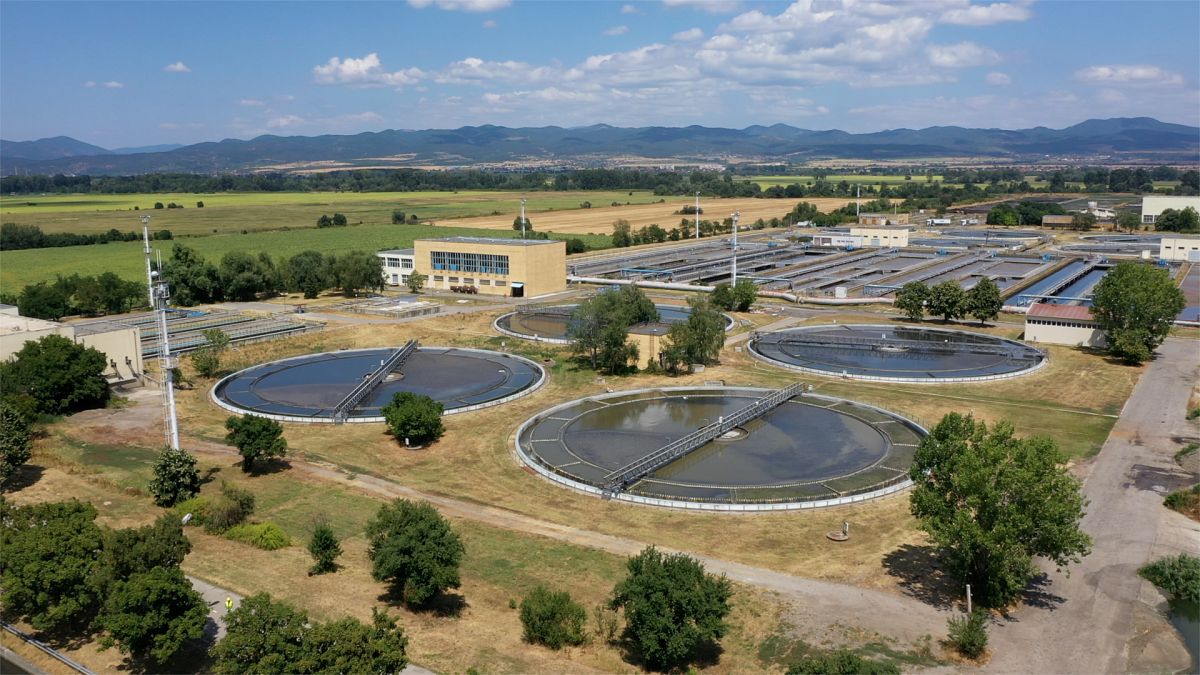The journey to our taps and the subsequent water treatment cause around 5% of greenhouse gas emissions in many countries. But a water plant in Bulgaria is bucking this trend. Can this plant be expanded to the point where the water industry becomes climate neutral?
From turning on the tap to flushing the toilet, few of us think about the environmental impact of our water consumption. However, the process of providing clean water and treating it after use has a significant carbon footprint. In fact, in many countries, the energy needed to pump and treat our water is thought to account for around 5% of all greenhouse gas emissions, a figure comparable to the aviation industry.
Bulgaria defies the trend
A few hours after someone goes to the toilet in Sofia, the capital of Bulgaria, what is flushed away usually ends up in the Kubratovo wastewater treatment plant. The plant is operated by Sofiyska Voda, a company of the Veolia Group, and is one of the most energy-efficient in Europe.
“We collect the wastewater from the citizens of Sofia. We treat it here so that it is discharged into the river in a clean state. In the process, we produce biogas. This biogas is then converted into electricity and heat. The heat is used for our processes and the electricity covers the needs of this plant,” Stanislav Stanev, technical director of Veolia Bulgaria, told Euronews.
Every year, the Kubratovo power plant generates around 24,000 megawatt hours of electricity and heat energy – enough to power 2,300 households annually. What sets the plant apart from other water treatment plants is the efficiency of its digesters, which produce the biogas, Stanislav explains.
“The difference lies in the amount of biogas produced. Normally, sewage treatment plants produce 50 to 60 percent of their own needs. And here we cover more than 100 percent of our needs. We also save CO2 emissions, about 70,000 tons per year.”
Towards net zero
In addition to CO2, wastewater treatment also produces many gases such as methane, a powerful greenhouse gas. Capturing and using these gases through a process called cogeneration prevents their release into the atmosphere while allowing them to be used as an energy source.
“This is one of the sectors where it is not impossible to achieve net zero emissions or even zero emissions,” explains Diana Ürge-Vorsatz, vice-chair of the Intergovernmental Panel on Climate Change (IPCC).
“We have many opportunities to use water much more efficiently and to reuse those gases that are greenhouse gases today. Overall, we can achieve a net zero balance, especially if the energy we use to do this comes from renewable energy sources,” she adds.
Gold Standard
The Kubratovo power plant has already received Gold Standard certification for reducing its emissions, but further plans are in the pipeline.
Summing up, Stanislav says: “We are currently commissioning a new plant that will increase biogas production here by 10 to 15% and we are installing photovoltaic systems. But it is not just about this plant, we are exchanging ideas with our colleagues and trying to inspire the other plants to achieve energy self-sufficiency, because that is something the group is asking us to push forward.”
The correct use of water
Euronews and the European Commission are working together to promote the EU campaign WaterWiseEU. Our Water Matters series and the EU campaign aim to raise awareness of the increasing pressure on European water systems and the need for sustainable water management. Water Matters addresses various water-related issues and highlights the importance of protecting nature and ecosystems that are essential to the water cycle. Through engaging content, Euronews and the European Commission hope we can inspire individuals and communities to become #WaterWiseEU.

